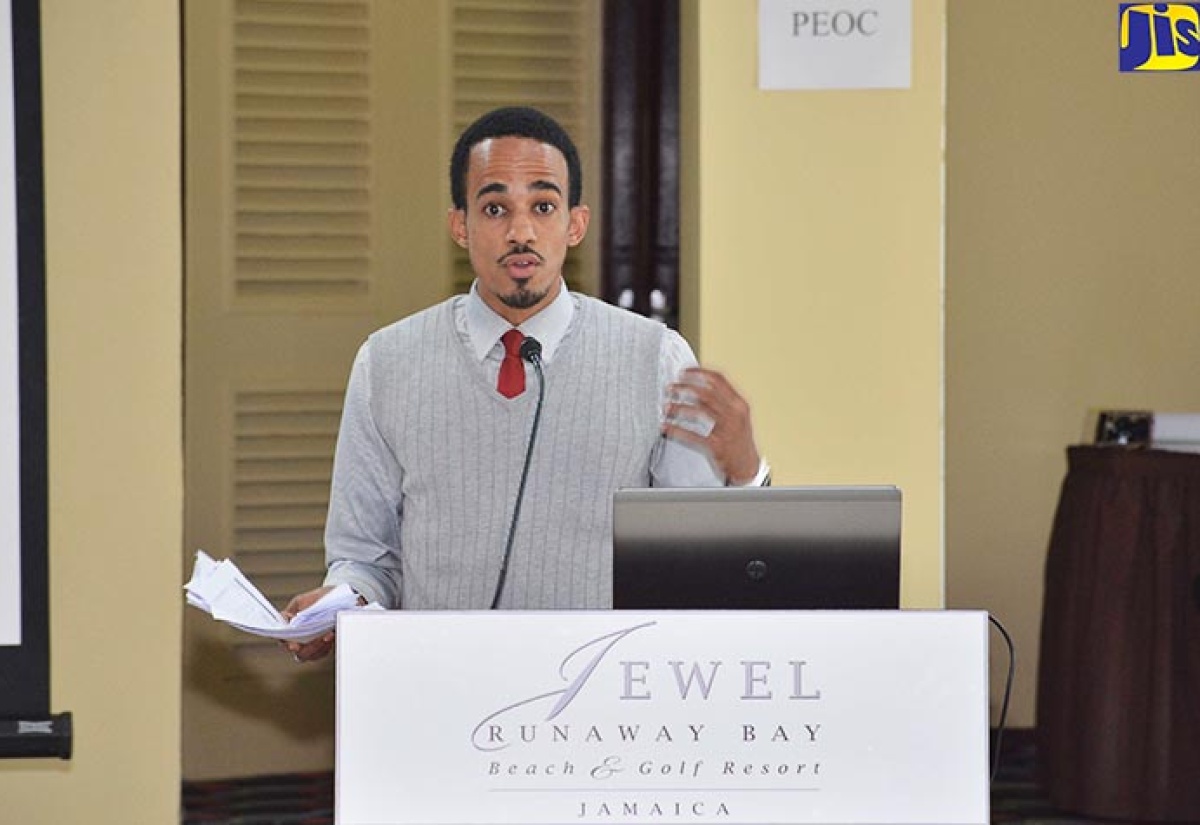Tourism Sector Resilience Being Strengthened Against Natural Disasters
By: , January 23, 2018The Key Point:
The Facts
- The Programme, which is implemented through the Tourism Emergency Management Committee (TEMC), is focused on developing comprehensive disaster-risk-reduction strategies for the sector.
- “It (the Programme) incorporates more of a proactive approach that aims to improve sector-wide management of disasters, such as tropical storms, hurricanes, flooding, earthquakes, fires as well as health threats. So, the programme is to improve the overall capacity of the sector to coordinate and communicate during emergencies,” Mr. Chin informs.
The Full Story
The Ministry of Tourism stands committed to safeguarding the natural resources, infrastructure and the sector stakeholders that continue to drive economic growth and prosperity.
This is being done through the Climate Change and Multi-Hazard Contingency Programme, aimed primarily at strengthening the resilience of the tourism sector against the various natural disasters and emergencies that may disrupt industry operations.
The Programme, which is implemented through the Tourism Emergency Management Committee (TEMC), is focused on developing comprehensive disaster-risk-reduction strategies for the sector.
Director for Tourism Facilitation in the Policy and Monitoring Division of the Ministry, Osbourne Chin, tells JIS News that the Programme integrates disaster-risk management and climate-change considerations into tourism planning, policies and initiatives.
“It (the Programme) incorporates more of a proactive approach that aims to improve sector-wide management of disasters, such as tropical storms, hurricanes, flooding, earthquakes, fires as well as health threats. So, the programme is to improve the overall capacity of the sector to coordinate and communicate during emergencies,” Mr. Chin informs.
He further explains that the TEMC is tasked with “building a resilient tourism industry with the ability to ‘bounce back’ quickly and coordinate effectively in the event of an emergency, so as to substantially reduce loss of life and damage to economic, social, physical and environmental assets caused by natural and human-induced hazards and disasters”.
The Committee is a collaborative, public-private partnership involving the Ministry of Tourism and its agencies, the wider tourism industry, disaster management agencies, and other key stakeholders.
Tourism entities include accommodation and attractions, such as the Jamaica Hotel and Tourist Association (JHTA), the Jamaica Association of Villas and Apartments and the Association of Jamaican Attractions.
Other key partners are local parish councils; parish disaster committees; the Office of Disaster Preparedness and Emergency Management (ODPEM); first responders, such as the Jamaica Fire Brigade, Jamaica Constabulary Force (land and marine), the Jamaica Defence Force (JDF) and the Jamaica Red Cross; transportation partners, the airports and seaports, Port Authority of Jamaica, the craft markets and other groups involved in tourism.
“We try to facilitate partnerships among tourism entities to respond more quickly and effectively on the ground. We also try to encourage the development of disaster plans among our stakeholders; so the whole idea is to help the sector to effectively prepare for, respond to and recover from disasters. We have to provide an organised approach to reduce damage and losses, to save lives and prevent injuries, and protect property and the environment,” Mr. Chin points out.
Highlighting the work of the Committee, the Director notes that through the collaboration of the various stakeholders, comprehensive development plans and work programmes are crafted to guide the tourism sector and key players in mainstreaming disaster-risk management and climate change.
“So, what we try to do is keep abreast of the different hazards via the relevant agencies and media, and we advise and prioritise the various threats and hazards. We also make recommendations for different strategies and actions, such as assessments relating to hazards, risks and vulnerability,” he says.
“We also monitor the decisions that are made at the national level by the Prime Minister or through the National Disaster Committee, as well as ODPEM, and establish and maintain a communication network with different partners in the communication sector,” Mr. Chin adds.
He tells JIS News that the Committee promotes the development of emergency plans and cluster emergency groups, and encourages the different disaster entities to work with the various hoteliers and tourism interests to prepare their disaster and emergency plans.
“We also implement various training and capacity-building programmes before the start of the hurricane season and throughout the year,” he outlines.
A key role of the Committee is to facilitate the Tourism Emergency Operations Centre (TEOC), which serves as the primary emergency point in charge of coordinating the tourism sector’s response during emergencies and disasters.
The TEOC is the tourism sector’s coordination centre for emergency services during any major emergency affecting the sector and, by extension, the entire island. This is activated once there is major emergency or disaster affecting the sector and when the National Emergency Operations Centre is activated.
The Committee currently has two centres, one at The Jamaica Pegasus hotel in Kingston and the other at Altamont West Hotel in Montego Bay.
The TEOC is organised to serve as an effective communication centre and information clearinghouse, a place to resolve confusion and conflicts, and an authoritative source of information and decisions. It provides adequate communication facilities, working areas, resource data files and other necessary operation requirements.
During the response phase of an event, the TEOC operates a communications/ press centre which maintains constant communication with Jamaica Tourist Board offices and personnel in the United States, Canada, United Kingdom and Europe as well as the Caribbean Tourism Organization (CTO).


